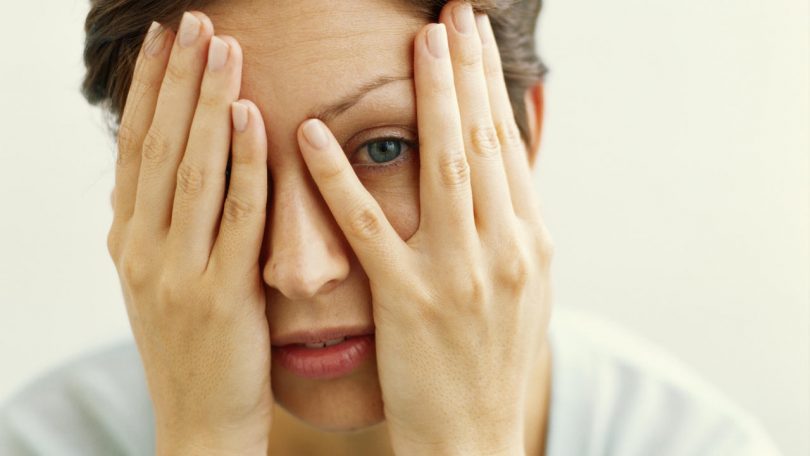Using Cannabis for medicinal purposes continues to be a controversial topic which is troubling considering the numerous studies that prove its medical efficacy. For many people suffering from anxiety, depression, and other similar psychological disorders, Cannabis could offer a viable long-term solution.
People who suffer from anxiety feel a persistent feeling of unease. They may have concern or worry over an uncertain situation or an upcoming event. There are a variety of types of anxiety, like obsessive-compulsive disorder (OCD), post-traumatic stress disorder (PTSD), panic disorder, and general anxiety itself. While all are different, they each have similar debilitating symptoms.
History of Cannabis’s Use for Medicinal Purposes
Portuguese doctor Garcia de Orta described the first documented use of Cannabis to treat anxiety in 1563. He claimed that it relieved sufferers from care and worries.
Over 400 years ago Cannabis was used to relieve stress and treat depression in India. CBD-rich medical Cannabis has a history of use treating many health problems, including anxiety. Its popularity spread throughout the Middle East, Africa, and Asia where it was used for everything including childbirth and pain relief.
American journals started recommending the use of hemp seeds and roots to treat venereal disease and inflammation in the 18th century. Even Queen Victoria used it for menstrual cramps.
William O’Shaughnessy is credited with popularizing Cannabis’s use in America and England. It was used to ease nausea symptoms in rabies, tetanus, and cholera, as well as pain.
Cannabidiol and Tetrahydrocannabinol
Tetrahydrocannabinol (THC) is a psychoactive chemical compound that affects brain performance through interaction with the nervous system. It causes the altered perception, mood, cognition, and behavior of users. THC’s therapeutic effectiveness is known to help with insomnia, nausea, depression, and pain.
On the other hand, cannabidiol or CBD, the second most concentrated cannabinoid in most Cannabis chemovars is the main molecule from the plant used in treating anxiety. CBD is not a psychoactive cannabinoid but releases a sedative high that is responsible for the relief of neurotic pain and spasms, anxiety, rheumatoid arthritis, nausea, and inflammation. It also works as an anti-psychotic and has been used in treatments for schizophrenia, PTSD, and epilepsy.
Balance between CBD and THC is imperative as the wrong combination enhances the adverse side effects. For people looking to treat anxiety disorders, treatment relies on the appropriate dosage of the two cannabinoids. High levels of THC can raise anxiety levels canceling out the positive medicinal effects.
Photo by Milada Vigerova on Unsplash
Linalool
People have used aromatherapy to heal their patients for centuries. Terpenes make up approximately 80% of essential oils and are often used to relieve many medical conditions, including anxiety disorders. The healing properties of these oils are connected to their terpene composition.
Linalool is a terpene frequently used in aromatherapy because of its floral aroma. Inhaling it affects anxiety. Research conducted on mice illustrated that linalool increased social behavior and decreased aggressiveness. A dash of linalool intensive oil quickly helps anxiety.
Caryophyllene
This terpene is a CB2 receptor antagonist and smells like black pepper. Studies showed that the CB2 receptor was linked to depression and anxiety disorder. The study tested mice as they ran through a maze and the experiments demonstrated that caryophyllene reduced their anxiety levels. These receptors were identified in the amygdala of the mice, the part of the brain that regulates anxiety.
Endocannabinoids
Vanderbilt University conducted a study that discovered smoking Cannabis increased the presence of endocannabinoids, chemicals that naturally occur in the brain, that chronic stress reduces. Many researchers suspect that endocannabinoids may be a leading cause of anxiety disorders. It also regulates the body’s natural flight-or-fight reaction.
More Proof
On April 7, 2017, Canabo Medical Inc. released the results of a study that showed that within 90 days of using prescribed medical Cannabis for pain and anxiety, 40% of the patients reduced or stopped taking benzodiazepines. Benzodiazepines are commonly taken to treat anxiety but have a large number of side effects.
Evidence from studies also shows that Cannabis could treat PTSD. Since Cannabis plays a direct part on memory extinction, experts believe that it could help people that have PTSD forget negative experiences and bad memories.
Regardless of the political implications that medical Cannabis use has no position within medicine’s treatment armamentarium, the fact is that it’s widely applicable clinically. Certain chemovars and formulations can target specific medical conditions like glaucoma or Crohn’s disease. Medical Cannabis research “suggests that a joint a day might keep your psychiatrist away.”









